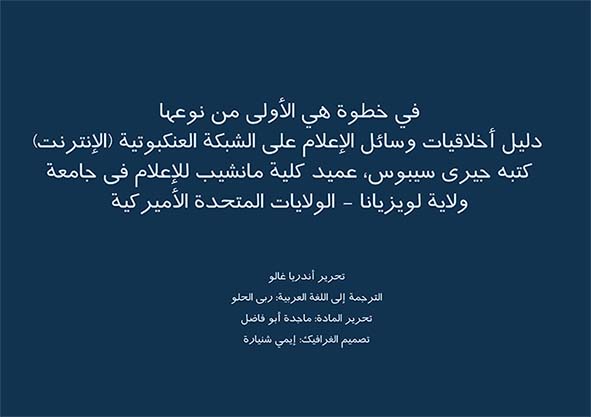A tweet promoting the “First-Ever Guide to Online Media Ethics” [PDF] led Media Unlimited director Magda Abu-Fadil to seek out its author in a bid to disseminate it to journalists, bloggers, trainees and students across the Arab World.
The announcement by Andrea Gallo, a Louisiana State University (LSU) student on the birth of her publication, prompted Abu-Fadil to obtain the booklet and oversee its translation into Arabic.
Various organizations have published online media ethics guidelines but few have made the effort to disseminate them in an easy-to-use Arabic-language compendium.
Rouba El-Helou, a media studies faculty member and journalist, translated the text into Arabic and Abu-Fadil edited the booklet [PDF].
The guide is well thought out and its sections cover news judgment and conflicts, transparency, sourcing ethics, knowing your audience, plagiarism, when problems arise, photos and art, and social media.
Governments, notably in the Arab World, have increasingly slapped on penalties or sentences on producers of online content they deem offensive, and have equated such content with that of print publications.
In other countries officials have begun to deal with the issue through restrictive legislation such as requiring online media to obtain a license to operate, leading to a whole set of ethical problems.
The booklet is an annual project for LSU’s Manship School of Mass Communication students.
Dean Jerry Ceppos, who teaches an undergraduate course called “Media Ethics and Social Responsibility” (MC 4090), assigns his charges production of this invaluable resource.


